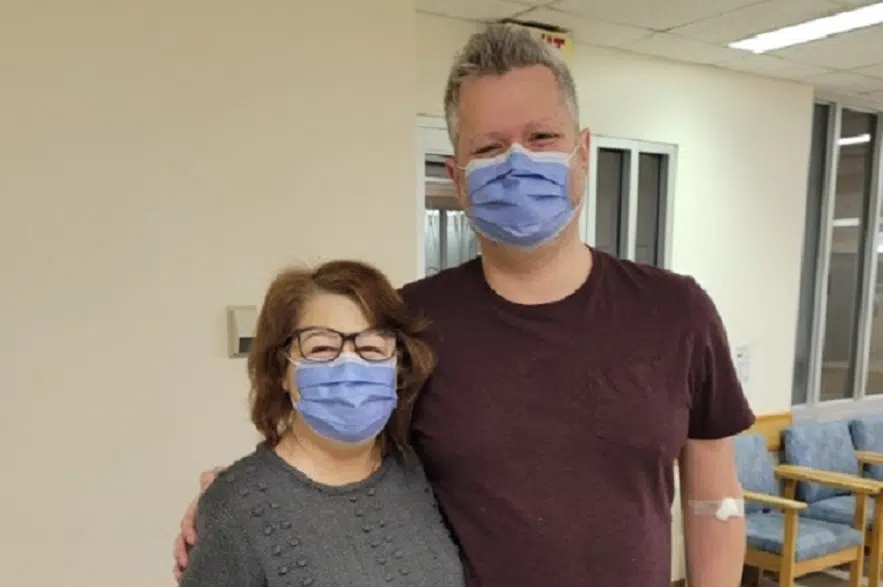Six months ago, Debbie Onishenko and Brent Kruger didn’t know one another.
That all changed with one phone call.
Onishenko has had diabetes her entire life, and while she kept herself as healthy as possible, the 61-year-old said by June of last year, she had only nine per cent kidney function left. Doctors were preparing her to go on dialysis.
She was already on a donor list, but decided to take matters into her own hands.
“I had years ago seen an ad in Ontario,” Onishenko said. “A guy had put an ad on the back of his vehicle for a kidney. So then this summer I looked it up, saw what he wrote and went to a sign company in town and had them make it up.”
The sign placed on the back window of her car read “Kidney Needed Type O 306-249-1971. Share Your Spare.”
On Aug. 22, Onishenko got a call from 42-year-old Brent Kruger that would change her life.
“I just felt compelled to give her a call because her blood type and my blood type match and I said, ‘If there’s a chance that I might be a match, then I should probably give it a try,’ ” Kruger recalled.
After another call to the Saskatchewan Organ Donation Program, a series of tests was set up for him to take to see if he would not only be a match for Onishenko, but whether he could live a healthy life after donating a kidney.
“They gave me 11 different requisition forms from September until the middle of January. I had about 40 vials of blood taken,” said Kruger. “I got an ultrasound done, I got a CT scan done, respirology test (done), nuclear renal test done … I passed all the tests.”
He got the call confirming he could be a live kidney donor for Onishenko on Jan. 26.
“All the emotions came at once … I FaceTimed Debbie because I wanted to see her reaction when I told her. That was a pretty special moment,” he said.
“I’m like, ‘This is really real. It’s really sinking in. It’s an amazing thing. I’m actually going to get a kidney,’ ” Onishenko added.
Day to day, she said she would not only live longer, but would have more energy and a lot less worry. Her husband Ed said it was incredible that a donor had been found.
“I couldn’t be happier for Deb. I met Brent the donor for the first time and we had a great visit … It’s a miracle in the making,” Ed said.
Both Onishenko and Kruger say they’ll remain friends after the surgery.
“I made a friend for life, absolutely,” she said.
“It’s uncanny how much of a connection she and I have, from being complete strangers before this all started happening,” added Kruger.
The two are now waiting to be assigned a date and time for the surgery. Two medical teams need to be ready.
“From what we gather, they usually only do transplant surgeries the last Tuesday of every month. So I would assume either the end of February or end of March, depending on what’s booked,” said Onishenko.
Kruger is expected to remain in the hospital for about a week, while Onishenko will likely stay longer to allow for anti-rejection medication to take effect.
Onishenko also hopes to raise more awareness about live organ donations.
“Whether you do it for a stranger or a family member, find out,” she said. “You could save a life and give a life.”












